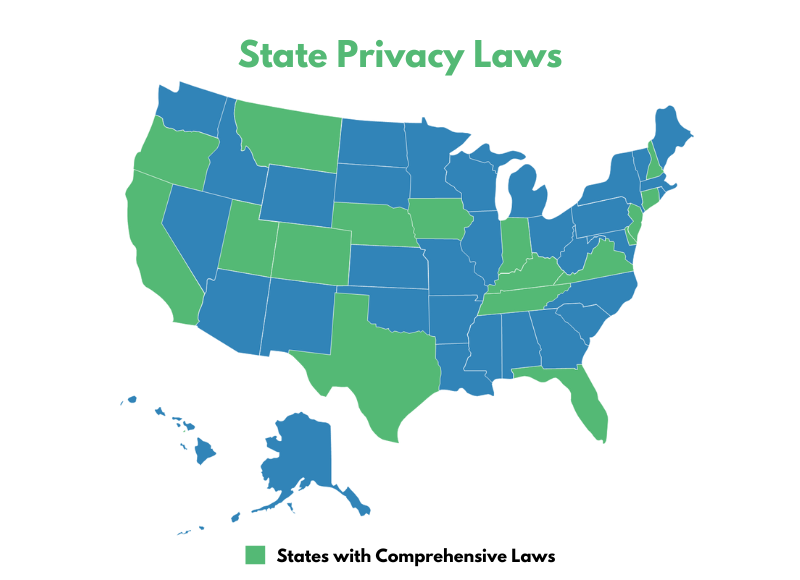
Does your privacy matter to you?
Today’s interconnected digital age shows the importance of understanding the amount of data we produce, as well as the rights surrounding our data. Our lives are online and present many conveniences, from quickly ordering a pizza to attending online class. Also, newer technologies like wearable devices and the Internet of Things (IoT) are changing the way we interact with technology, creating innovative use cases we are only just beginning to explore.
With all of this comes the exchange of information. Of course, our personal information follows us wherever we go, even when we travel across the United States. Without a federal data privacy law, the protection of our data is at risk because our data is treated differently by different laws as we cross state lines.
Americans need a federal data privacy law that protects all Americans equally, regardless of where they are.
As Pew Research points out, the concern around privacy isn’t all that new and the exchange of information is increasing. Right now, however, we have a stalemate in Congress and several failed attempts at creating a national standard. This stalemate has left a widening gap that states are filling with inconsistent protections.
As of April 2024, 17 states across the country have enacted state-level privacy laws, a dramatic increase in just a year. As more states take action to enact privacy laws, room for confusion and inconsistency grows, and questions are left unanswered.

States in alphabetical order: California, Colorado, Connecticut, Delaware, Florida, Indiana, Iowa, Kentucky, Montana, Nebraska, New Hampshire, New Jersey, Oregon, Tennessee, Texas, Utah, and Virginia
So regardless of where you live – and what law your state may or may not have – why should you care?
Data flows across state lines, but state laws stop at the border. Inconsistent laws could lead to misused data and privacy breaches. Further, complex, varying compliance guidelines not only create confusion but tie businesses’ hands, forcing extra costs to trickle down that could ultimately be absorbed by us. We even risk slowing down digital innovation.
The case for a comprehensive federal privacy law that reflects the reality of the technological age has never been more urgent. As states continue to fill the gap, it’s clear that legislation at the federal level would increase all American’s protections and create a cohesive national environment, fostering the growth of 5G innovation that enhances our lives.
While you take steps to protect your own data privacy, consider taking it a step further. Continue to educate yourself on all the reasons why we need a strong, comprehensive national privacy law.